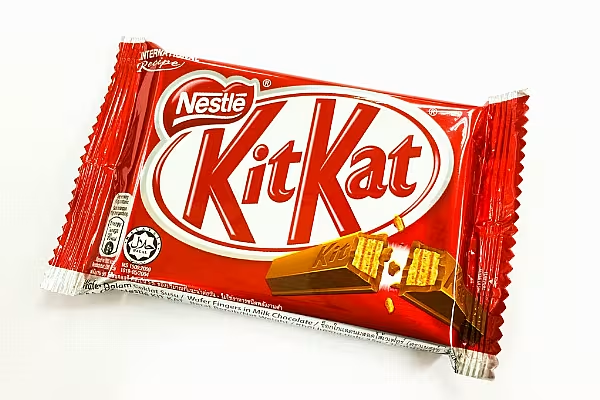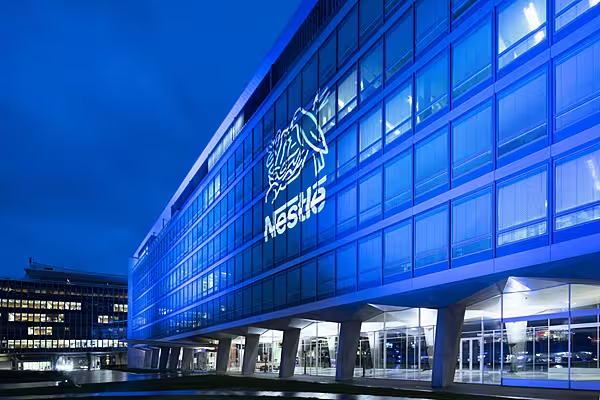The four-finger KitKat isn’t a distinctive-enough shape to warrant a trademark, UK Court of Appeal judges said recently, marking the fourth unsuccessful attempt by owner Nestlé SA to protect the famous chocolate bar.
The decision follows two British rulings and a European judgment in the decade-long efforts to trademark the famous candy bar. Mondeléz International’s Cadbury UK unit had challenged the latest appeal. The EU General Court ruled in December that chocolate didn’t meet the bar required to deserve a European Union-wide trademark protection.
Three appeal judges agreed with lower courts that the evidence didn’t go “as far as to show that the consumer would perceive the bars in the basket as originating from Nestlé and not from others," they said in the ruling. “The distinction may be highly technical, but it is important, because of the nature of the trademark, which gives the trader a monopoly for all time.”
The KitKat was first sold in the UK in 1935 by Rowntree & Co., with the shape changing very little since then. Nestlé, the world’s biggest food company, bought Rowntree Plc in 1998 and owns the trademark to the bar shape in the rest of Europe.
Disappointed
Nestlé said that it was disappointed and considering its next move.
“This judgment does not mean that our four-finger shape is now free for use in the UK or elsewhere,” the company said in an emailed statement. “Nestlé’s four-finger shape has been granted trademark registration in many countries of the world, for instance, Germany, France, Australia, South Africa and Canada, further protecting it from imitations.”
Mondeléz said that it welcomed the decision.
“As we have previously stated, we do not believe the shape of the KitKat bar should be protected as a trademark in the UK,” the company said.
The UK Trade Marks Registry turned down the application to protect the chocolate bar in Britain in 2013, following the opposition from Cadbury.
Mondeléz, which also makes Oreo cookies, was created in a split of Kraft Foods Group, Inc. in 2012. The Deerfield, Illinois-based company had an 18% share of the Western European chocolate-confectionery market in 2016, compared to Nestlé’s 9.4%, according to Bloomberg Industries data.
News by Bloomberg, edited by ESM. Click subscribe to sign up to ESM: The European Supermarket Magazine.














